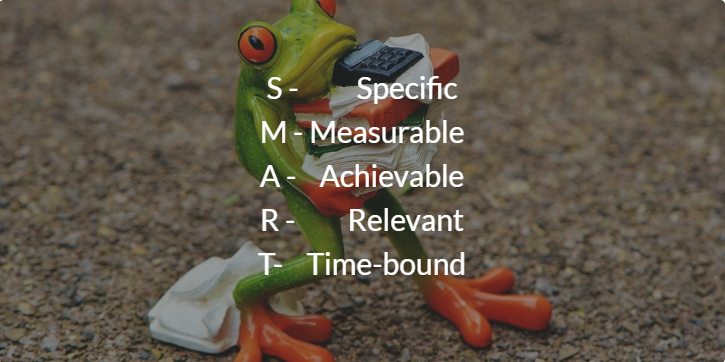When you’re working on a project, you need to have a goal in mind if you want to get things done. Having a clear goal in and of itself can help make your work process easier. But not just any goal. You need a SMART goal.
What Are SMART Goals?
A SMART goal can make it easier to approach your work and measure success.
SMART is an acronym that represents several factors that you should consider when you’re deciding on a goal. Some letters have multiple meanings, and you can pick which factor best applies to your situation.
SMART Definition
S – Specific
Your goal needs to be clear and you need to be able to state it concisely.
Think about it this way. If you were talking about your goal with someone else, would they be able to understand your goal if you only described it with one or two sentences?
M – Measurable
Your goal should have aspects about it that you can use to measure progress or be able to say definitively “I’ve completed this goal”.
For example, are you trying to improve sales? Incorporate a specific and observable number into your goal, like increase next month’s revenue by $1000.
A – Achievable OR Agreed Upon
Is your goal achievable? Is it a reasonable thing to aim for? Your goal shouldn’t be too hard, but it shouldn’t be too easy, either.
Alternatively, is your goal something that everyone on your team can agree on? Does it conflict with any other goals or upcoming obligations? If you’re working with more than one person, make sure everyone else is on-board with your objective.
R – Realistic OR Relevant
Examine the resources available to you.
Is your goal feasible when you consider your time, finances, and labor capacity? How does it compare to your previous goal in terms of scale? A goal that is much more difficult than the last one may actually be a de-motivator for work and make you and your team less effective.
You may also want to consider whether or not your goal is relevant to other objectives you have. Does the end result relate to your vision of the future? Is this goal a step to complete another, larger objective?
T – Time-bound
Your goal needs to have some sort of time-constraint in order for you to work effectively and measure your progress.
Think, is the amount of time that you’re giving yourself enough to complete your goal? Too little time makes your goal unrealistic, but giving too much time won’t put pressure on you to work as efficiently as possible.
SMART Goals Worksheet
There are a lot of factors to consider when trying to decide on your final objective, so we’ve made an easy SMART Goals worksheet for you to fill out so that you can make sure your goal is SMART.
Ready to convert those goals into action items? Check out this article!
